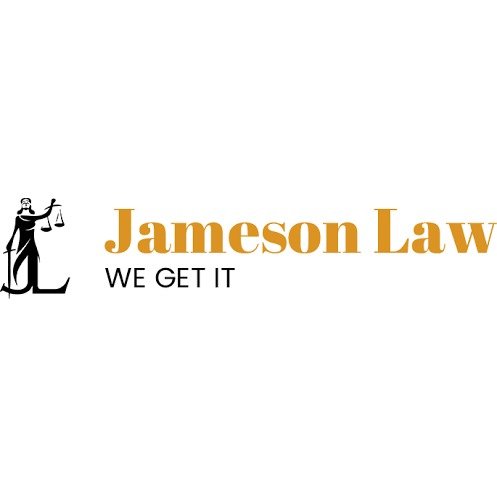Best General Litigation Lawyers in Parramatta
Share your needs with us, get contacted by law firms.
Free. Takes 2 min.
List of the best lawyers in Parramatta, Australia
About Litigation Law in Parramatta, Australia
Litigation law in Parramatta, Australia, involves the process of resolving disputes between parties through the Australian judicial system. Located in New South Wales, Parramatta serves as a central hub for legal affairs in the western suburbs of Sydney. Litigation can encompass a wide range of legal disputes, including commercial issues, personal injury claims, contractual disputes, and more. The litigation process in Parramatta typically involves several stages, including pre-trial matters, court proceedings, and potentially, appeals. Lawyers specializing in litigation are adept at navigating these processes and can represent clients in both civil and criminal matters.
Why You May Need a Lawyer
There are many situations where engaging a lawyer for litigation might be necessary. For instance, you may need legal assistance if you are:
- Involved in a business dispute or breach of contract.
- Facing or initiating a lawsuit regarding property ownership.
- Experiencing family law issues such as divorce or child custody disputes.
- Dealing with personal injury claims resulting from accidents.
- Accused of a criminal offense requiring defense in court.
- Seeking damages for defamation or other torts.
In these cases, a lawyer can provide valuable advice, represent your interests in court, and help achieve a favorable outcome.
Local Laws Overview
Parramatta, being part of New South Wales, adheres to the legal framework established under both state and federal laws of Australia. Key aspects of local laws relevant to litigation include:
- Civil Procedure Act 2005 (NSW): This act outlines the procedures for civil matters in New South Wales courts.
- Criminal Procedure Act 1986 (NSW): Governs the processes involved in criminal proceedings.
- Uniform Civil Procedure Rules 2005: These rules detail the conduct expected in civil court processes.
- Evidence Act 1995 (NSW): Provides guidelines on the admissibility of evidence in legal proceedings.
- Regulations specific to commercial activities, consumer rights, employment disputes, and family law matters.
Understanding these regulations can help individuals and businesses navigate potential litigation processes and prepare for court proceedings effectively.
Frequently Asked Questions
What is the first step in initiating litigation in Parramatta?
The initial step in initiating litigation is usually to consult with a lawyer to discuss your situation. Your lawyer will help you determine if litigation is the appropriate course of action and help you file a statement of claim if necessary.
How long does a typical litigation process take?
The duration of litigation varies widely depending on the complexity of the case, the court's schedule, and whether the case goes to trial or is settled out of court. It can range from several months to a few years.
Can I settle my dispute out of court?
Yes, many disputes can be settled out of court through negotiation, mediation, or arbitration, which are often faster and less costly than a full court trial.
What costs are associated with litigation?
Costs can include court fees, lawyer’s fees, and other expenses related to gathering evidence and expert testimony. It's important to discuss potential costs with your lawyer at the outset.
What is 'discovery' in the context of litigation?
Discovery is a pre-trial phase where both parties exchange information and evidence pertinent to the case. This step is crucial for both sides to understand the strengths and weaknesses of each other's case.
Do I need a lawyer to represent me, or can I represent myself?
While you have the right to represent yourself in court, it is often advisable to engage a lawyer due to the complexity of legal procedures and the importance of presenting a strong case.
How do appeals work in Parramatta?
If dissatisfied with a court's decision, parties may have the opportunity to appeal to a higher court. The appeals process involves reviewing the application of law in the initial trial rather than introducing new evidence.
Can legal aid help with litigation costs?
Legal aid in New South Wales can help eligible individuals with the costs of legal representation in certain types of cases. Eligibility is determined based on a means and merit test.
What if I lose my case?
If you lose, you might be required to pay the other party's legal costs, depending upon the court's order. Your lawyer should discuss the potential outcomes with you before proceeding.
Is arbitration the same as litigation?
No, arbitration is a form of alternative dispute resolution outside the courts. It’s generally faster and less formal, and the arbitrator's decision can be binding.
Additional Resources
If you're seeking further information or assistance related to litigation in Parramatta, consider reaching out to these resources:
- Law Society of New South Wales: Offers a referral service to find a qualified lawyer in Parramatta.
- Legal Aid New South Wales: Provides legal assistance to eligible individuals.
- Community Justice Centres : Offers mediation services to help resolve disputes out of court.
- Australian Legal Information Institute (AustLII): An online resource for accessing Australian legal documents.
Next Steps
If you believe you need legal assistance in litigation, consider taking these steps:
- Determine the specifics of your legal issue and gather relevant documents.
- Contact a lawyer experienced in litigation to discuss your case. Initial consultations can help clarify your options.
- Prepare questions and concerns to discuss with your lawyer to make the most of your meetings.
- Discuss the potential costs upfront and ask about payment plans or legal aid options if necessary.
- Consider whether alternative dispute resolution methods like mediation could be appropriate for your situation.
Taking these measures can help you navigate the litigation process more effectively and work towards a resolution that aligns with your legal needs.
Lawzana helps you find the best lawyers and law firms in Parramatta through a curated and pre-screened list of qualified legal professionals. Our platform offers rankings and detailed profiles of attorneys and law firms, allowing you to compare based on practice areas, including General Litigation, experience, and client feedback.
Each profile includes a description of the firm's areas of practice, client reviews, team members and partners, year of establishment, spoken languages, office locations, contact information, social media presence, and any published articles or resources. Most firms on our platform speak English and are experienced in both local and international legal matters.
Get a quote from top-rated law firms in Parramatta, Australia — quickly, securely, and without unnecessary hassle.
Disclaimer:
The information provided on this page is for general informational purposes only and does not constitute legal advice. While we strive to ensure the accuracy and relevance of the content, legal information may change over time, and interpretations of the law can vary. You should always consult with a qualified legal professional for advice specific to your situation.
We disclaim all liability for actions taken or not taken based on the content of this page. If you believe any information is incorrect or outdated, please contact us, and we will review and update it where appropriate.










